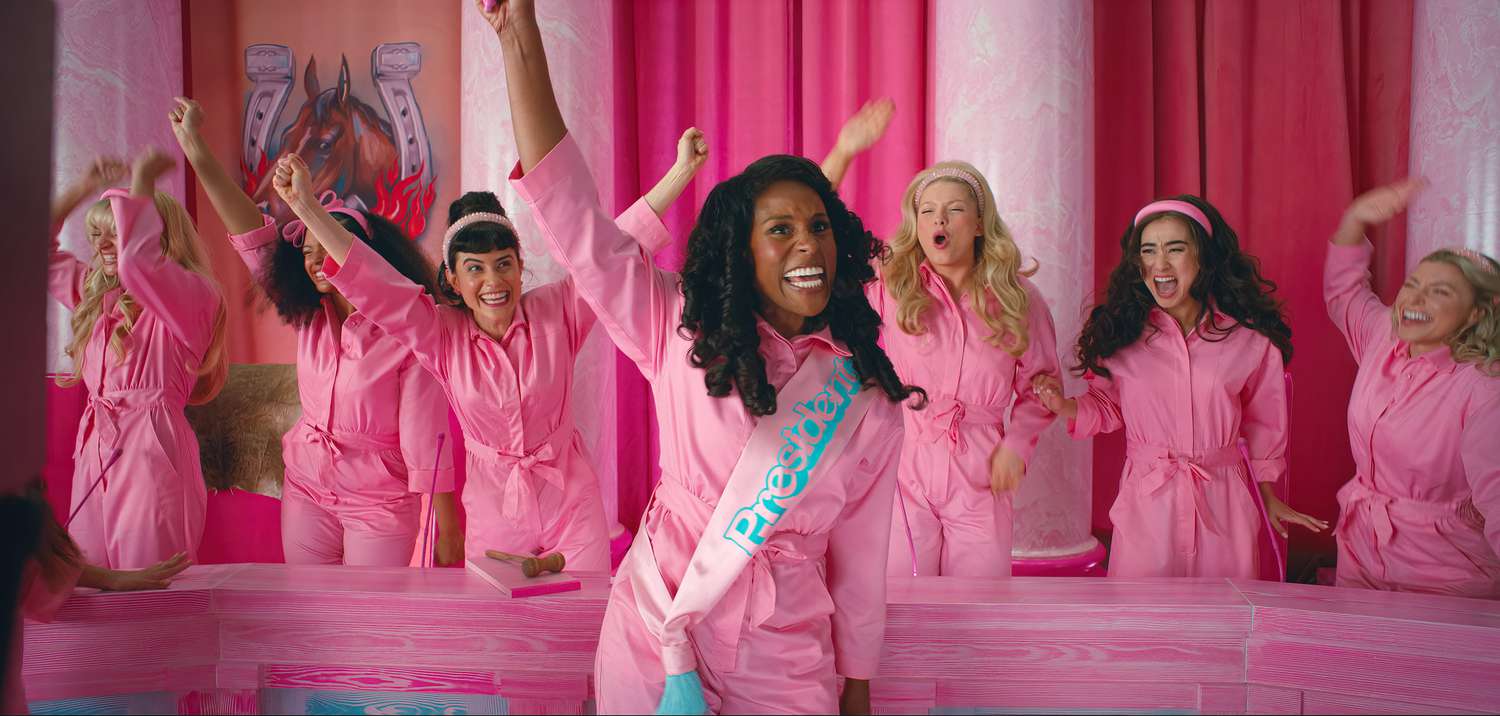
The function of art is to do more than tell it like it is – it’s to imagine what is possible.
I thought Barbie was a solid film. Powerful tonal shifts, a mostly banging soundtrack and emotional heft in the right places (my gf was in bits after five mins). There’s the whole franchise/sequel dark age critique that has been done to death, although Blindboy found an angle wondering when millennials will finally be marketed to as middle-age instead of “young people” that I lapped up. Here, I just want to do a little vent about the ending and why it felt pessimistic to me.
Full disclosure: I read my first bell hooks book, The Will to Change: Men, Masculinity, and Love, earlier this year. It’s maybe embarrassing to admit as a man approaching middle age, but my internal feminist logic before this was back-of-a-fag-packet, hr-diversity-and-inclusion-seminar level stuff. I enjoyed the MORE 👏 WOMEN 👏 DRONE PILOTS 👏 meme and nodded along when podcasts would deliver “respect women” platitudes, perhaps while detailing Megan Thee Stallion being shot. On occasion, I may have even comforted myself by sincerely thinking “I’m an ally” or, another cringe-fest, “I’m Doing The Work”.
I’m likely in dicey “reads bell hooks once” slash “33 YO man REACTS to bell hooks for the first time!” territory here but as a Geezer reading this book I learnt:
- the extent to which male spiritual suffering is guaranteed under patriarchy
- without an anti-patriarchal mindset, feminism is prone to reproduce a logic of
domination - how solidarity between men and women, rooted in love, is necessary to
dismantle patriarchal forms - that spiritual healing and nurturing of men is possible, and necessary, within
a radical feminist vision for change
Here’s a related anecdote. My first stable, short-lived job out of university was a recruitment consultant in Nottingham on 16k a year (and if you’re thinking I got juicy commissions instead, I was unbelievably shit at this profession). I worked in a very small (~10 ppl) office that was almost exclusively women. Very progressive and cool, I thought! As it turns out, the standard tools of domination were routinely wielded over my precarious, pathetic employment contract with absolutely no bother. I was targeted on the number of cold calls I was making every day, given the dreaded personal development plan (AKA we want to sack you, nice and legally) and even taught how to skim money off the top of our contractors pay packets via umbrella companies. The “floor” had an ultra-competitive, money-obsessed air that frequently bubbled over into confrontation and hostility. It turned out this matriarchy didn’t create a healthy workplace by osmosis, it was giving disciplinaries and trauma. To make it abundantly clear - on a personal level, I had time for almost everyone in the building. I rate recruitment as a realistic avenue for working class, often non-graduates to make a decent living (eventually). My lasting observation is that a traditionally hierarchical, toxic, macho culture reasserted it’s exploitative practices via women who had learnt well from the patriarchs that came before them. As hooks says:
More than ever before in our nation’s history, females are encouraged to assume the patriarchal mask and bury their emotional selves as deeply as their male counterparts do. Females embrace this paradigm because they feel it is better to be a dominator than to be dominated. However, this is a perverse vision of gender equality that offers women equal access to the house of the dead. In that house there will be no love.
(Oi!!! Barbie spoiler warning ahead 📢)
Much of Barbie is set in a fictional, sugary sweet kingdom called Barbieland. One of the film’s central tensions is how the “Kens” are made to occupy the role of the dominated under a matriarchy and experience oppression from various social and decision-making spheres. A tag-line used all over the film’s marketing is “Barbie is Everything. Ken is Everything Else”. As the film progresses, it elegantly tees up an opportunity for the Kens to rebrand the kingdom as “Kenland” and establish an overt, trashy patriarchy. Through this process, both Barbie and Ken have first-hand experience of living as the dominated gender in society. Barbie comes to regret the exclusionary, psychologically damaging cultural practice in Barbieland of “every night is girls night”. Yet, despite the unique opportunity to establish an equal society with a true coalition across genders staring them square in the face, the film ends with the full restoration of Barbieland to it’s default matriarchal arrangement. U wot, m8? I can’t read this any other way than being deeply cynical about relationships between men and women, as well as the prospects of an equal society across lines of gender.
I get that this is one of the films the whole industry is banking on to bring ppl out. I wasn’t expecting a radical feminist agenda to be front and center of a hollywood blockbuster. Maybe Mattel insisted on an ending that upheld the status quo of the Barbie universe. Still, the film was explicitly about patriarchy which seems to have baited out Piers Morgan and the like already. At worst, the film becomes counterproductive and invites patriarchal men to understand feminism as a cause external, even harmful, to themselves.
That’s it rly! I should acknowledge once more that this is principally a fun, nostalgia-drenched film that was not made for me. Lots of people love the film, and good on them. I would recommend it to a pal, still. Thank you for letting me scratch this itch, pls go enjoy life again.
Oh, and read more bell hooks, always.